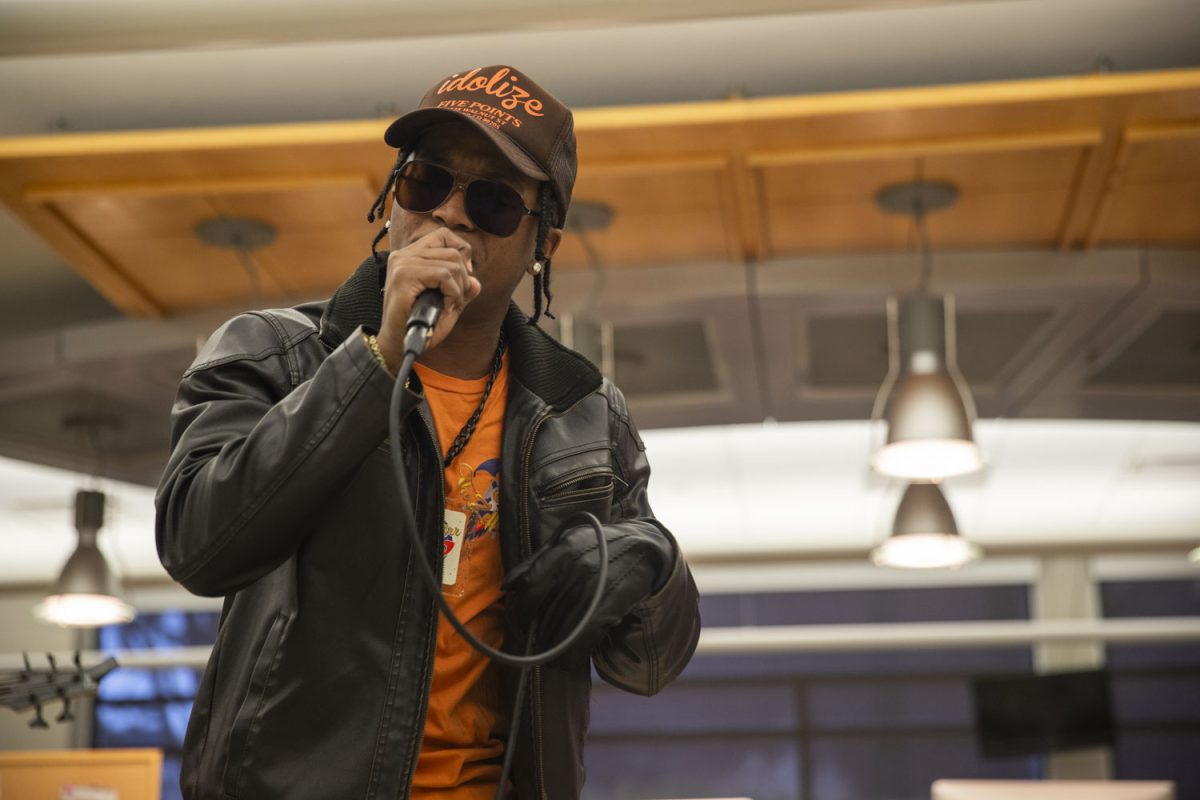For Charles Bernstein, poetry is about the possibility of truthfulness rather than about the actual truth. It’s a form of nonfiction in which he believes he can use structures, lengths, textures, and styles to formulate his writing.
He will come to Iowa City on an Ida Beam Fellowship, where he will take part in three days of events. He will read from his book All the Whiskey in Heaven and from his new collection, Recalculating, as well as speak about his forthcoming book, Attack of the Difficult Poems: Essays and Inventions, at 8 p.m. today at the Dey House. Admission is free.
At 11 a.m. Friday, Bernstein plans to host a question-and-answer session in which he will also talk about the many forms of media he uses.
The free event will also take place at the Dey House. Later that day, at 8 p.m., Bernstein will be a part of a public interview hosted by two film Ph.D. students. The students will show some of Bernstein’s video work and will interview him about the role of new media in revitalizing poetry.
A staged reading of Bernstein’s opera libretto, Shadowtime, will be presented at 8 p.m. Saturday in the Biology Building East’s Kollros Auditorium. Admission is free and open to the general public.
The reading will be performed by 17 poets from the Iowa Writers’ Workshop, in which they will tell the story of the last day of Walter Benjamin’s life.
"This is going to be an amazing performance," said Cole Swensen, a poetry professor in the Writers’ Workshop. "It’s pretty short, less than an hour, but it’s so dynamic."
Bernstein started to write a lot in junior high, when he began to think about writing, reading, literature, and art.
"I was obsessed with the verbal streams going through my head," he said. "So much depends upon what you mean by poetry. I guess you can say [I started] in college."
In college, he felt he could relate to poetry a little more.
"I’ve always been interested in nonfiction," Bernstein said. "And the great thing about poetry is that it is nonfiction."
He is a professor at the University of Pennsylvania, where he teaches 20th century poetry.
Upon arriving at the University of Pennsylvania, he, along with Al Filreis, cofounded PennSound — an archive of poets reading their works. PennSound not only includes excerpts of individual poems, it also has full readings from modernist and current poets. The archive consists of 10,000 files and approximately 10 million downloads per year.
"Our idea was to create a vast archive of recording of poetry readings because we have a commitment to the significance of these readings for the art of poetry," Bernstein said. "The reading or performance of a poet is as important as the text."
And in Swensen’s view, Bernstein — who she refers to as "the giant" in the world of contemporary poetry — has done more to change the way poetry is written in the country than anyone else.
"Bernstein will change students’ notions of what poetry is," she said. "… They’ll think about his sharp critique of commodity culture and contemporary media manipulation for a long time after."






